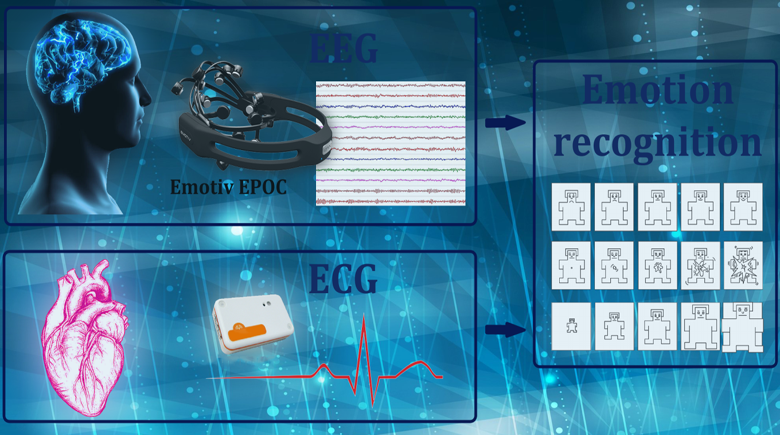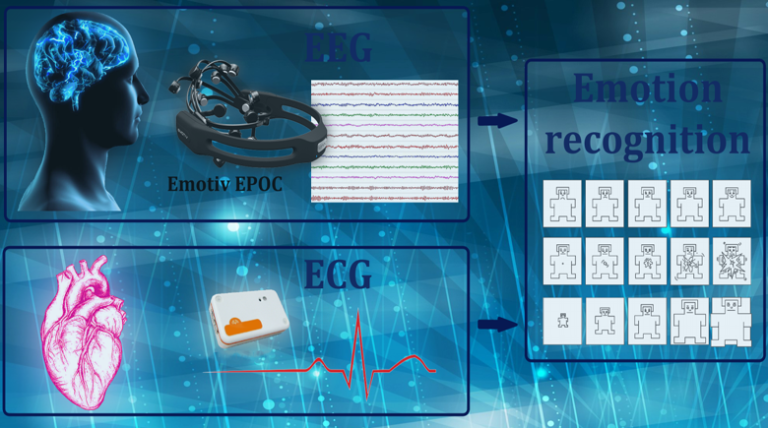
DREAMER is a multi-modal database consisting of electroencephalogram (EEG) and electrocardiogram (ECG) signals recorded during affect elicitation by means of audio-visual stimuli in the form of film clips. The database contains the recorded signals from 23 participants, as well as the self-assessment of their affective state after each stimulus in terms of valence, arousal, and dominance. All the signals were captured using portable, wearable, wireless, low-cost and off-the-shelf equipment that has the potential to allow the use of affective computing methods in everyday applications. The Emotiv EPOC wireless EEG headset and the Shimmer wireless ECG sensor were used for capturing the brain and physiological signals respectively. The motivation of this work is threefold: 1) To provide a dataset for affect recognition research, 2) To compare the affect recognition -related performance of low-cost portable EEG and ECG devices against “medical grade” devices and establish whether they constitute a viable alternative, and 3) To demonstrate the feasibility of integrating affective computing methods to everyday applications through the use of portable/wearable equipment. A baseline for participant-wise affect recognition using EEG and ECG -based features, as well as their fusion, was established through supervised classification experiments. Classification results in terms of valence, arousal and dominance for the DREAMER database are comparable to the ones achieved for other databases that use non-portable, expensive, medical grade equipment. These results indicate the prospects of using low-cost devices for affect recognition applications. The DREAMER database is publicly available in order to allow researchers to further evaluate the suitability of these capturing devices for affect recognition applications.

